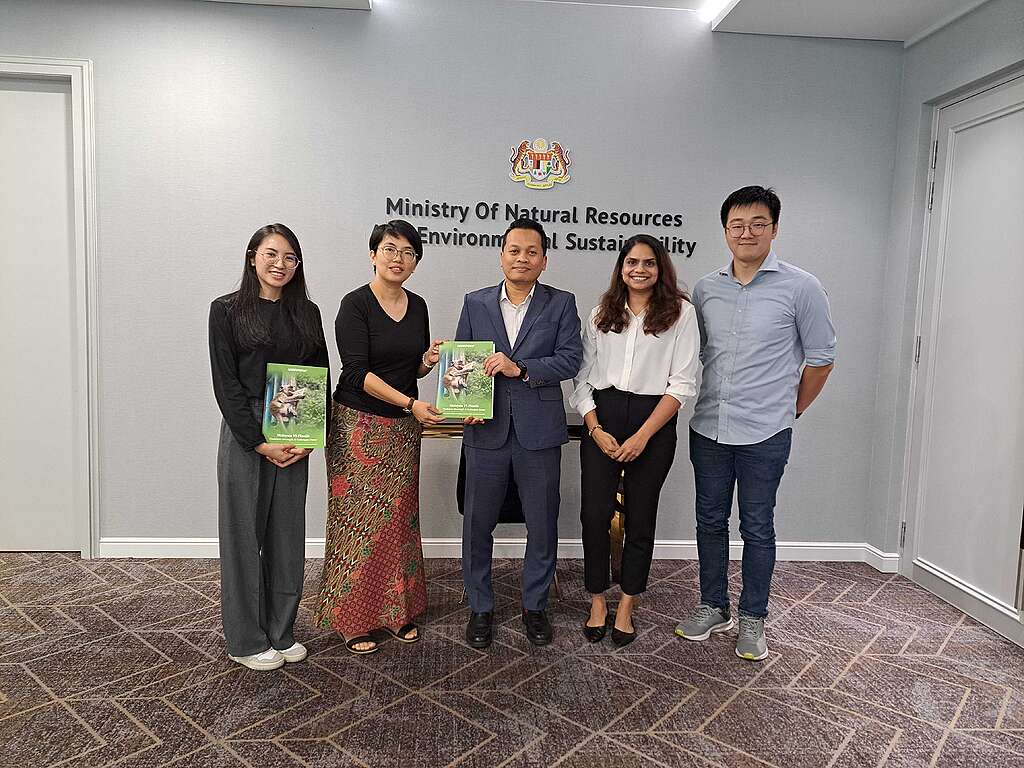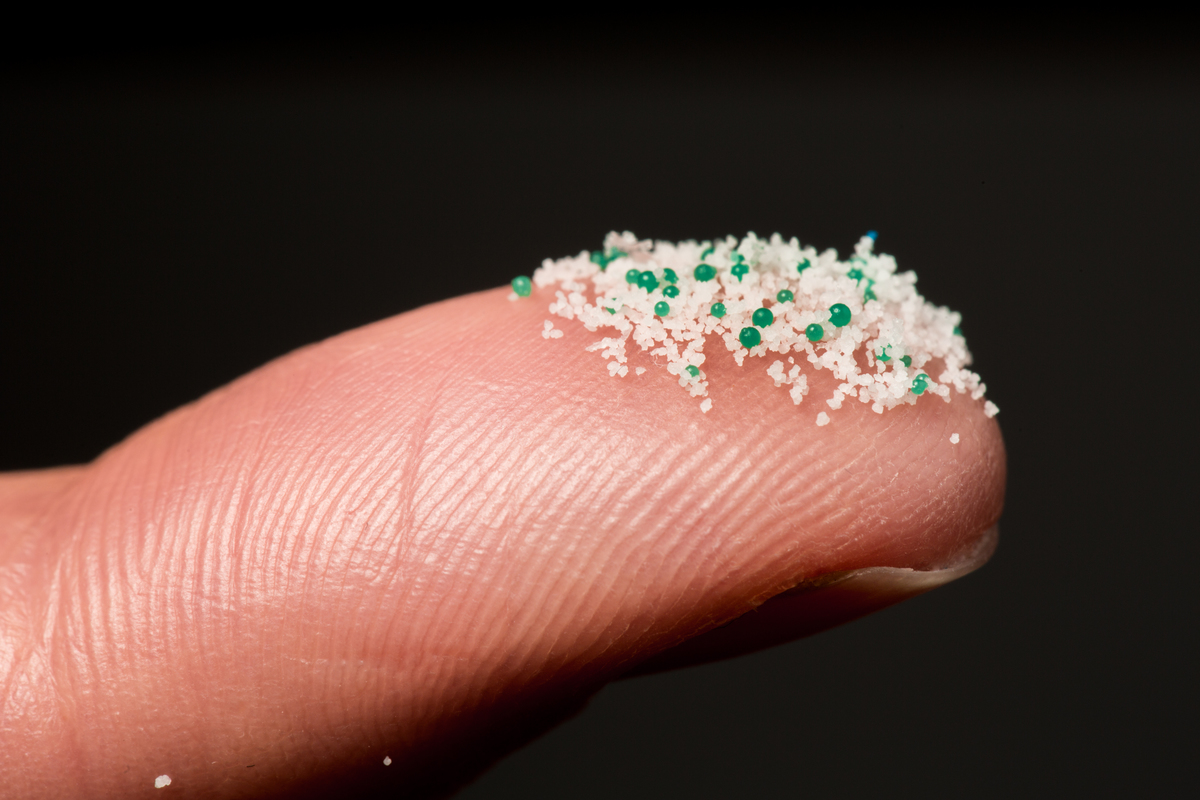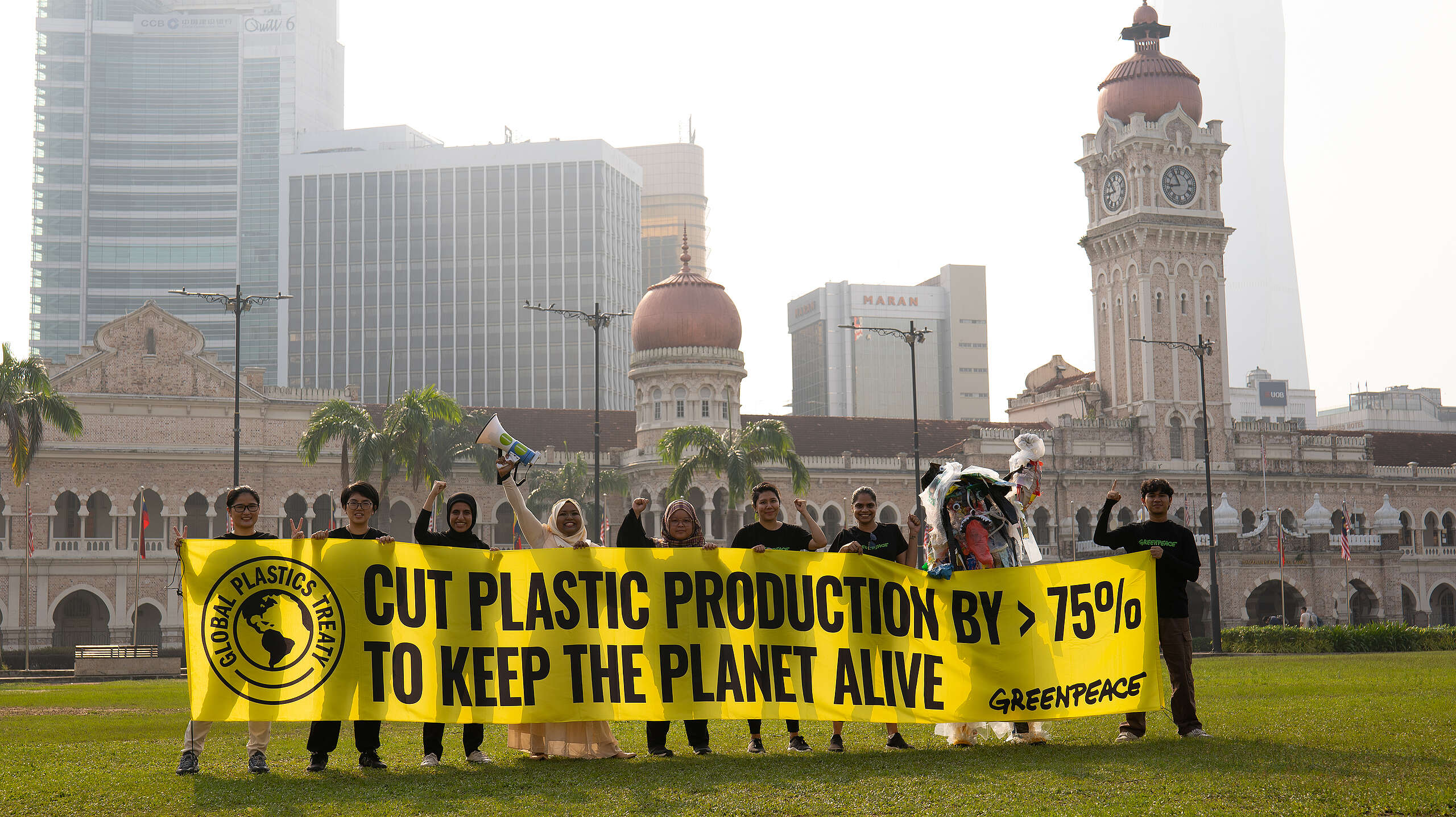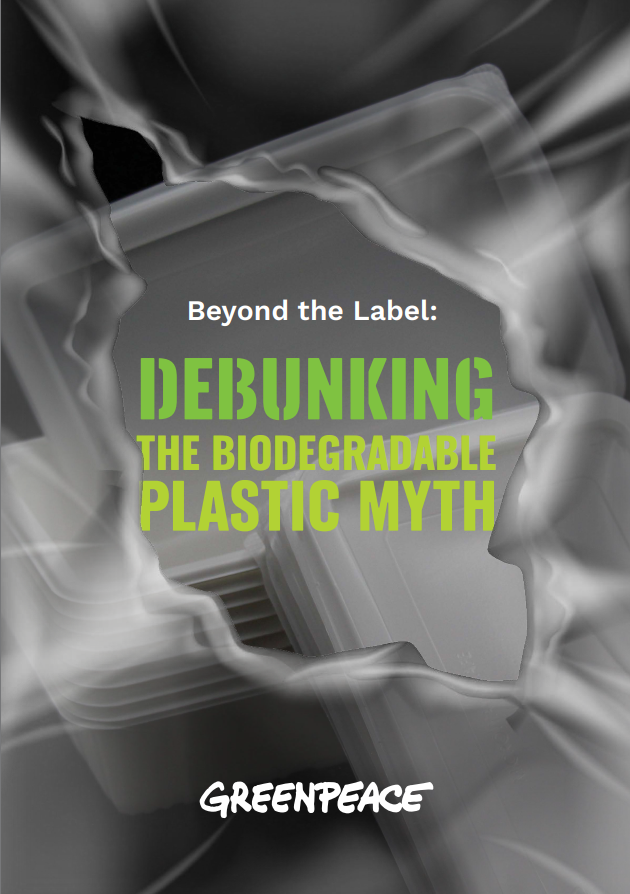Creating a cleaner, healthier future
The hardest part of our job as campaigners is not only the research and investigations to find the issues within our country that need to be fixed, or raising awareness on environmental destruction; it’s the background work of creating a lasting impact through policy work by persuading and pressuring our government to take actionable steps toward long-term solutions.
Malaysia is ambitiously on the road toward a plastic waste-free future that will reduce public health risks, take into account green jobs and protect our natural environment from plastics’ hazardous impacts. Despite countless roadmaps and action plans proposed by the government, they’ve hit a snag, caught between profit-making for the economy, and how to boldly transition away from materials that are affecting its people. But bolstering the economy and at the same time prioritising people’s health and safety, are not mutually exclusive – which is what we are fighting toward.

555 (which coincidentally means ‘ha ha ha’ in Thai)
On Nov 5, our campaigners met with the Ministry of Natural Resources and Environmental Sustainability (NRES) in the lead up to the fifth and final Intergovernmental Negotiating Committee (INC5) on a Global Plastics Treaty. During the meeting, we stressed the importance of Malaysia needing a strong treaty to stop waste colonisation, while at the same time reducing the burden of waste in our own country. In addition to this, Greenpeace Malaysia drew up a report with five key actionable policy recommendations for the ministry.
Five Key Proposals
1. Business – but not as usual
Greenpeace Malaysia’s first proposal was to strengthen the commitments of businesses in Malaysia, on human rights and Sustainable Development Goals (SDGs) by advancing Extended Producer Responsibility (EPR) between 2025 to 2027, to address plastic pollution. This includes a shift to refill and reuse systems, aside from plastic waste management through EPR. As these matters relate to the well-being of communities, especially those affected by plastic pollution, the government needs to create a transparent, collaborative system which will in turn hold businesses accountable for their role in reducing single-use plastic so they can step up as environmentally responsible leaders.
The EPR scheme is currently voluntary but plans are for the Ministry of Housing and Local Government (KPKT) to make it mandatory within the given timeline between 2026 and 2030. However, they expressed that the effectiveness may be challenging because it involves multiple stakeholders.
2. Cuti-cuti Malaysia
As Visit Malaysia year is coming up in 2026, one of our recommended points of action was to improve the cleanliness of Malaysia’s National Parks, marine parks and other tourist islands by placing a ban on single-use plastics in the areas. While at the same time, engaging local vendors to adopt alternative practices such as reuse and refill systems, making them the primary force behind plastic-free initiatives in the area. Restricting such throwaway plastic items at entry points will help with the overall promotion of ecotourism at a global standard, while at the same time reducing the amount of waste management required to preserve the pristine beauty of our natural environment, enhancing tourists’ experience. Imagine a cleaner Malaysia with unspoiled coastlines and natural wonders!
It was a clear mini-win for environmental activists as the ministry said they will be taking this work up with local authorities to start this initiative in nearby states, with plans to expand it to other states. As Forest Research Institute Malaysia (FRIM) already has an ongoing programme similar to this, they will be working closely with the institute, with the possibility of scaling up to include marine parks. On the following day, the minister announced in his ministerial monthly staff meeting that he wants to roll out a ‘No single-use plastics in National Parks, forest reserves and marine parks’ programme by 2026, which was witnessed by the Ambassador of Brazil.
3. Not in our backyard
For years now, plastic waste colonialism has not only affected Malaysia, but many ASEAN member states, including the Philippines, Indonesia, Thailand, and Vietnam. Plastic waste colonialism essentially means that waste from other developed countries are shipped to our shores whether through illegal or legal means. So to tackle this, we recommended Malaysia play a leading role both as the ASEAN chair next year, and in the upcoming Global Plastics Treaty negotiations (INC5). Our country should lead the call on urging developed nations and our own to cut back on single-use plastic production by 75% by 2040, and commit to ending single-use plastic. This move will reinforce Malaysia’s stance as a global advocate against plastic pollution that is rooted in our human right for a clean, safe and healthy environment.
To this, the ministry faltered in their response. Despite talks of tackling waste colonialism and addressing the waste trade, the ministry only talked about addressing illegal importations of plastic waste through stricter penalties and enforcement. While issues with legal plastic waste imports, which are already straining our current capacity to process, was not seen as an issue but an added benefit. On the following day, the NRES minister YB Nik Nazmi Nik Ahmad issued an official announcement that there are import quotas in place, with the government mandating that “clean and homogenous plastic waste” that is imported, is limited to 70% of factory capacity, with the remaining 30% sourced from local plastic waste. He said this in response to the statement of “Malaysia remains the world’s second-largest importer of plastic waste from the EU”.
4. Greening the economy, sustainably
Again, shifting to environmentally sustainable practices through plastic reduction should not and is not about reducing our economic vibrancy. Our proposal calls for Malaysia’s ministry to foster green jobs by prioritising providing licences to businesses investing in zero-waste solutions such as refill and reuse systems and products; instead of new manufacturing licences for single-use or unnecessary plastic products. By supporting green innovation, this policy will reduce environmental pollution, lower waste management costs, and advance Malaysia’s shift toward an actual circular economy – not one that uses non-circular methods such as the incineration of our natural resources.
The NRES did mention potential plans to start engaging with the Ministry of International Trade and Industry (MITI) on incentivising new models and product designs next year. However, there was a worrying amount of ‘false solutions’ talked about, including shifting to other materials in lieu of plastic, which would only shift the burden onto other natural resources. They also mentioned that they are working on the list of “problematic plastics and chemicals”.
5. Save us from spending more on health bills
Like with many things, we Malaysians need actual laws for there to be a hope of complying. So we proposed a Clean Air Act that will enforce strict air quality standards around industrial zones, including waste facilities such as waste recycling plants, helping to reduce air pollutants that may compromise public health.
They are looking at amending and better enforcing the phase-out of old plants, including taxes on pollution and emissions, as well as air and water pollution to pressure industries.
But at the end of the day, NRES raised that the challenge of tackling the issues with plastic waste stems from a lack of integrated and holistic approach with many different ministries in charge of different aspects relating to environmental degradation. So all we can do is keep up the good fight and serve as a reminder that there are better solutions – all we need is the courage to go against the grain.




Discussion
Howdy! This article couldn't be written any better! Looking through this post reminds me of my previous roommate! He always kept preaching about this. I am going to send this information to him. Pretty sure he will have a very good read. I appreciate you for sharing!